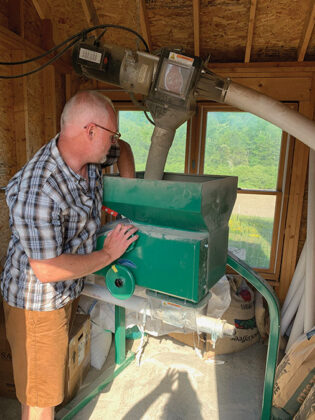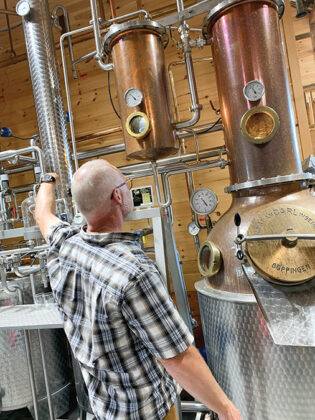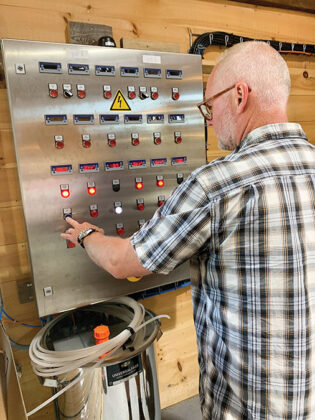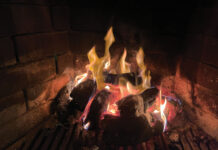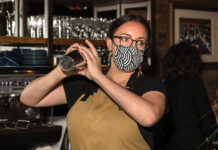Branchwater Farms in the Hudson Valley, New York, community of Milan was born of a midstream career change by wine sales veterans and husband-and-wife team Kevin Pike and Robin Touchet. Pike spent several years directing sales for national importer Skurnik Wines’ portfolio of German and Austrian wines, but he grew restless. So in 2014, he left to open the importer/distributor Schatzi Wines. At the same time, the couple purchased a 100-acre farm in New York’s Hudson Valley.
“If one’s to be an entrepreneur, one has to be optimistic,” he says, “and maybe I was overly optimistic with what I could do at one time.” Pike’s partner in Schatzi, native German and lifelong vintner Johannes Leitz, counseled him to tread cautiously, knowing that it would take years to get the farm in working order — let alone achieve profitability.
Pike and Touchet had originally intended to make cheese, but thought otherwise after discovering how complicated it would be to manage. The Hudson Valley’s persistent summer humidity and subsequent growth of fungi mitigates its ability to grow the very best of wine grapes, a point which underlies its centuries-old production of ciders and whiskeys. So, with the couple’s ongoing fascination with spirits as a tangential aspect of their work in wine sales, they decided to become distillers.
Pike applied to and was accepted into an incubator program with the Hudson Valley Agribusiness Development Corporation. Then he traveled to Austria to meet with his friend and Skurnik craft spirits supplier Hans Reisetbauer, who helped him with the distillery’s design and techniques and worked out a licensing and consulting agreement. After raising $80,000 in loans from friends and family, the couple were able to make a go of farming. A spirit of adventure got them through the early days. In 2019, they acquired a Small Business Administration-backed loan, allowing them to retrofit their circa-1840s barn with structural insulated panels to turn it into an operational distillery.
According to Reisetbauer, the stills and processes he helped Pike and Touchet with in the Hudson Valley are very similar to those he uses in Austria. Except, he explains, “Branchwater relies more upon its computers, since maintaining perfect temperatures is easier and more precise when doing so — they’re faster than us humans.” With a background in mechanical engineering, Reisetbauer isn’t afraid to innovate on tradition. Surprisingly, however, he claims never to have visited a distillery other than Branchwater and his own.
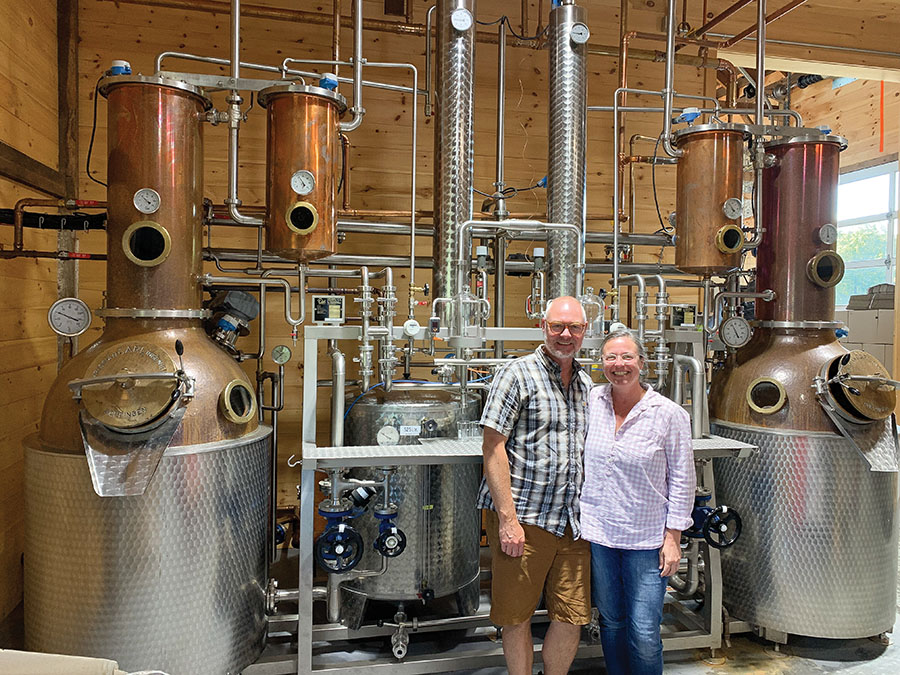
About 22–25 of Branchwater Farms’ 100 acres are planted with wheat (currently the base for their gin and a whiskey), Danko rye, and corn, which comprise the entirety of fermentable material for their grain spirits. “Because we practice regenerative agriculture [a means of combating and mitigating climate change’s impact through carbon sequestration], we grow tall grains,” Pike explains. “Modern wheat grows shorter [which means more energy goes to the grains] but would require us to nuke the field with glyphosate, so we’re under pressure to have the grain head ripe enough before the weeds come, which would prevent us from combining.” All water is drawn from their well, then carbon-filtered to diminish sulfides, UV-treated, and pH-adjusted. “If the pH is high or neutral the fermentations can grow acetobacter that I don’t want,” said Pike. The couple also rents their Milan-based space to a cider producer, although they play no role in its production.
In addition to Reisetbauer, they profited from the advice of Oregon-based modern farming legend Mimi Casteel, a pioneer in the regenerative agriculture sector, who guided them in establishing the practice of overseeding with red clover, daikon radishes, Austrian winter peas and oats. Crops like these help open the soil to aeration and improve water intake, add nitrogen, and suppress the growth of weeds. Based on her input, they purchased a roller-crimper, a machine that knocks down cover crops rather than tilling them under, to better manage their soil. They also instituted a new composting regime to maximize soil biodiversity, including the addition of kelp and molasses to horse manure from a neighbor’s farm. “We’re still figuring out how to apply her more viticulture-oriented practices to that of our farming of small grains,” Pike pointed out.
Pike also began spraying organic- and biodynamic-style “teas” in lieu of fungicides to combat the many diseases that plague the humid Hudson Valley. Pike and Touchet would love to be certified organic, but they prioritize practicing regenerative agriculture, and the two don’t always align perfectly. Pike puts it this way: “If our goal through regenerative agriculture is to sequester carbon, how does it make sense to fly in organic daikon radish seeds from Wisconsin when it’s possible to source them locally from farmers who aren’t certified organic?”
Branchwater Farms’ on-site grocery store — the only food retailer in Milan save its gas station — is supplied with a variety of other New York produce, mostly Hudson Valley-produced beverages and foods as well as eggs from ducks and chickens on Branchwater Farms. The store is above the distillery on a terraced landing, which also serves as the tasting room. “It takes a lot of investment to build a provision store,” says Pike, “so it’s come together piecemeal.”
In addition to overseeing their farm animals, Touchet draws upon her sales and marketing experience at New York state adult beverage distributor Polaner Selections to manage their spirit portfolio. She finds the relationship-based nature of selling spirits similar to that of wine, though in the cocktail and bartending world buyers are more likely to consider it as one ingredient of the final product — a cocktail — rather than the main event. “Which is why it’s fun to engage with customers in our tasting room when people are focused on tasting our drinks ‘naked’,” she says.
Whether talking to a retailer or a consumer, Touchet bases her pitch on storytelling. But it’s not only about the stories and values. Pike explains that he often finds himself at cross purposes with bartenders. “They may be looking for a 50% spirit blend that’s strong and forward in alcohol and aromatics … Our gin is 43.5%, but I’m looking for nuance and elegance, and its aromatics are restrained enough that the typical response we receive is that ‘it’s a great sipping gin.’” In other words, not always what bartenders are looking for in a mixer.
The brand’s first-ever release was on July 15, 2021, with 6,400 bottles of gin distilled solely from their wheat, flavored with 100% organically grown botanicals sourced from Reisetbauer in Austria and macerated with the spirit for 24 hours before its third distillation. Although 69% of those botanicals were juniper, the spirit comes across as having far less. Touchet says its herbaceousness is due to the quality of the wheat and the scrupulous omission of tails. “Everything we make has a sweet palate impression because we don’t use any tails, so there’s no astringency, with even our gin coming across as sweet,” she explains. “But there’s no sweetener ever used.”
In addition to what’s become a relatively ubiquitous, cash flow-generated foray into gin for craft distillers, Branchwater Farms also makes more unique fruit eaux-de-vie with bins of apples, pears, and black currants purchased from nearby orchards. For their pear eau-de-vie, five tons of unripe Bartlett pears were received and allowed to ripen and ferment in three stages: 60% yellow with some green skin, 30% yellow turning pink, and 10% red. The mix of ripeness levels provide a broader palate of esters and aromas to better approximate a true pear character.
In 2003, Greg Quinn (also a children’s book author) led the effort to repeal the circa-1911 law which forbade the commercial production of black currants in New York state due to misplaced concerns that the crop was an arboreal disease vector. He now supplies Branchwater Farms with this highly aromatic fruit from his Walnut Grove Farm in nearby Clinton. Five thousand pounds of black currants yield Branchwater Farms merely 100 liters of 84% distillate. “It took 21 days for the fermentation to start from the originally frozen currants,” says Pike, which led to some sleepless nights. Pike would someday like to add elderberry to his line of eaux-de-vie but has yet to acquire a reliable source for it.
Branchwater Farms uses Northern Spy, Ben Davis, and Rhode Island Greening apples — all cider varieties — for its apple brandy. After washing, the blemishes and leaves are removed before the fruit is ground and placed in the fermentation tank. With harvest running the cooler months of October to December, fermentation is managed easily, more so with temperature-controlled jackets on the fermentation tanks.
Apple fermentation will run 20–21 days, while pears take 25 days. Before release their apple brandy ages 20 months in #3 and #4 char, heavy toast Missouri and Minnesota oak barrels before being finished in wine barrels once used for chardonnay.
Whereas Reisetbauer heats with electricity, Pike uses steam to heat the two reflux condensers he uses for low-fructose fruits, such as currants, which yield very little alcohol when fermented. To compensate, Pike uses steam-heated reflux condensers that keep vapors circulating in the pot, allowing him to retrieve an additional 2% alcohol in the first and second runs. Grains, on the other hand, have ample sugars and so don’t require that additional reflux.
Though brandies and gin will always be part of what they do, whiskeys will eventually become the focal point of Branchwater Farms’ portfolio. Their first whiskey distillation occurred only in 2021, using grains they’d farmed and siloed for five years in anticipation of the happy day. The duo distills exclusively organically grown grains, grown with organic seed. Grains are pulled into a flex auger system where they are milled batch by batch to avoid oxidation and preserve fruitiness. Afterward they fall into a grist case fashioned from a chicken feeder. The grist is added to water heated to 194° F/90° C along with enzymes and a pH adjustment to 4.2 to release the starch. The temperature is then lowered to 20° C when pitching the yeast. A liquid propane-fired grain dryer will allow for barley malting in the future.
After aging in the Missouri and Minnesota oak barrels, Branchwater Farms finishes all its whiskeys in wine casks: wheat whiskey in pinot noir barrels and rye whiskey in cabernet sauvignon and merlot barrels. Branchwater Farms’ rye whiskey is far less peppery than most, which Pike claims is because they don’t include tails in their final distillate. Branchwater Farms may make its first corn whiskey later this year.
Branchwater Farms is a true farm distillery, and farming is always a gamble. In 2021, for example, rains destroyed all Hudson Valley grains except spring wheat, which Branchwater Farms hadn’t grown, leaving Pike to mow all 22 acres of that year’s grains into the ground. The setback hasn’t discouraged him, however. He has a vision to one day add cherries, raspberries, carrots (an unusual source that Reisetbauer has made his mark with), and maple sap from his sugar bush patch to Branchwater Farms’ distilling portfolio. But, given the couple’s long history of working with a broad range of fine wines and spirits along with their visionary Austrian friend’s assistance, the horizon for future developments at Branchwater Farms will certainly be a long one.
Branchwater Farms spirits may be found in AZ, CA, CT, CO, MS, NM, NY.

